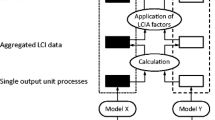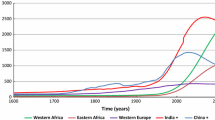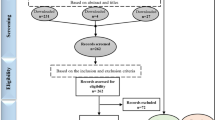Abstract
Water utilities render a public service that highly influences sensitive domains such as human health, society, economy, environment and policy. In the context of diversification of water uses, scarcity of water resources, pollution of surface and underground resources, energy optimisation and public funding cuts, the improvement of water utility performance represents a real challenge. A water utility is an organisation of human and material resources for the purpose of taking advantage of water resources to deliver drinking water to the population, implying a trade-off between technical, economical, financial and organisational aspects. A partial performance is commonly measured by considering each aspect separately, so a real challenge consists in developing a methodology that includes all the aspects of water utility performance using multiple indicators. The current paper is based on an original conceptual vision of the water utility as an organisation focused on the customer and built on four fundamental pillars: human resources, financial resources, assets and environment. The proposed approach uses an elicitation procedure involving the decision maker to co-build comprehensive core indicators belonging to each pillar and then calibrates them according to the context of the water utility, decision maker preferences and ad-hoc performance thresholds. In the end, performance is assessed both at the individual and overall scale. A specific metric is defined for overall performance calculation that should be monitored over a specified time period to check its trend and redefine implemented policy in the case of a downgraded situation. An illustration of the methodology is given for the water utility of Grenoble (France).







Similar content being viewed by others
References
Alegre H, Hirnir W, Baptisia JM, Parena R (2000)Performance indicators for water supply services. Manual of Best Practice Series, IWA Publishing, London, ISBN 1 90022202702. 146p
Aydin NY, Mays L, Schmitt T (2014) Sustainability assessment of urban water distribution systems. Water Resour Manag 28(12):4373–4384. doi:10.1007/s11269-014-0757-1
Berg SV (2007) Conflict resolution: benchmarking water utility performance. Public Adm Dev 27(1):1–11
Berg SV (2010) Water utility benchmarking: measurement, methodologies, and performance incentives. IWA Publishing. pp 1–80
Berg SV, Marques RC (2011) Quantitative studies of water and sanitation utilities: a literature survey, Water Policy, Forthcoming
Berg SV, Corton ML, Lin C, Sabbioni G, Jiang L, Jones A (2006) Water benchmarking support system: survey of benchmarking methodologies. PURC report. 97p. http://warrington.ufl.edu/centers/purc/purcdocs/PAPERS/TRAINING/Jamaica/July2006/advancedreadings/Benchmarking_Survey_Report.pdf. Accessed Mar 2015
Bhanoji R (2009) A ranking scheme for asian utilities. institute of water policy. Lee Kuan Yew School of Public Policy. National University of Singapore. Working Paper Series, Serial No IWP/WP/No.9/2009. http://lkyspp.nus.edu.sg/iwp/wp-content/uploads/sites/3/2013/04/A_Ranking_Scheme_for_Asian_Water_Utilities.pdf. Accessed Mar 2015
Canadian Water and Wastewater Association, CWWA (2009). Water conservation and efficiency performance measures and benchmarks within the municipal sector. An identification of current practices and an assessment of the feasibility of expanding their use. 50p. http://www.cwwa.ca/pdf_files/Final%20Project%20Report%20MOE%20Performance%20Indicators-%202009-03-31.pdf. Accessed Mar 2015
Canneva G, Guérin-Schneider L (2011) National monitoring of water utility performance in France. Water Sci Technol Water Supply 11(6):745–753
Coulibalya HD, Rodriguez MJ (2004) Development of performance indicators for small Quebec drinking water utilities. J Environ Manag 73:243–255
Eccles RG (1991) The performance measurement manifesto. Harv Bus Rev 69:131–137
Farmani R, Butler D (2013) Implications of urban form on water distribution systems performance. Water Resour Manag 28:83–97. doi:10.1007/s11269-013-0472-3
Guérin-Schneider L, Nakhla M (2003) Les indicateurs de performance : une évolution clef dans la gestion et la régulation des services d’eau et d’assainissement. Flux 52(53):55–68
Herz R (1996) Ageing processes and rehabilitation needs of drinking water distribution networks. J Water Supply Res Technol-Aqua 45(5):221–231
ISO (2007) ISO 24512, Activities relating to drinking water and wastewater services — Guidelines for the management of drinking water utilities and for the assessment of drinking water services. 54p. http://www.iso.org. Accessed Mar 2015
Kulshrestha M (2006) A scorecard for measuring the water supply utility performance: the case of large Indian metropolises. Int J Manag Decis Making 7(4):418–437
Ministère de l’écologie et du développement durable, MEDD(2007) Décret no 2007–675 du 2 mai 2007 pris pour l’application de l’article L. 2224–5 et modifiant les annexes V et VI du code général des collectivités territoriales.. Journal Officiel de la République Française
Nazif S, Karamouz M, Yousefi M, Zahmatkesh Z (2013) Increasing water security: an algorithm to improve water distribution performance. Water Resour Manag 27:2903–2921. doi:10.1007/s11269-013-0323-2
Nudurupati SS, Bititci US, Kumar V, Chan FTS (2011) State of the art literature review on performance measurement. Comput Indutrial Eng 60(2):279–290
Pacific Water and Wastes Association, PAWWA (2012) Pacific water and wastewater utilities: benchmarking report. 108p. http://www.ib-net.org/docs/PWWA.pdf. Accessed Mar 2015
Romano G, Guerrini A (2011) Measuring and comparing the efficiency of water utility companies: a data envelopment analysis approach. Util Policy 19(3):202–209
Roy B (1985), Méthodologie multicritère d’aide à la décision, Economica, Paris, 423 p
Sadiq R, Rodríguez MJ, Tesfamariam S (2010) Integrating indicators for performance assessment of small water utilities using ordered weighted averaging (OWA) operators. Expert Syst Appl 37:4881–4891
Smets H (2008) De l’eau potable à un prix abordable, la pratique des États, Académie de l’Eau, 254 p. http://www.water-tariff-for-vunerable.com/documents/Case_Studies/FR_Eau%20potable%20prix%20abordable%20smets%20La%20pratique%20des%20etats.pdf. Accessed Mar 2015
Stahre P, Adamsson J (2002) Performance benchmarking – A powerful management tool for water and wastewater utilities, 23p. www.urbaneconomics.ru/eng/download.php?dl_id=59. Accessed Mar 2015
Thanassoulis E (2000) DEA and its use in the regulation of water companies. Eur J Oper Res 1:1–13
Varis O (2005) Water and sustainable development: Paradigms, challenges and the reality. University partnerships for international development, Finish development knowledge. Finland future research center, Helsinki, pp 34–60
Ven der Berg C, Danielko A (2011) The IBNET Water Supply and Sanitation Performance Blue Book The International Benchmarking Network for Water and Sanitation Utilities Databook. The World Bank. 152 p. http://www.seawun.org/uploads/Focus%20Programs/IBNet-Blue%20Book.pdf. Accessed Mar 2015
Vilanova MRN, Filho PM, Balestieri JAP (2015) Performance measurement and indicators for water supply management: Review and international cases. Renewable and Sustainable Energy Reviews 43:1–12
Acknowledgments
The work presented was carried out within the framework of a specific collaboration contract funded by the water utility of Grenoble. We are grateful to all of the utility employees who helped us with our research and provided us with data, information and advice.
Author information
Authors and Affiliations
Corresponding author
Rights and permissions
About this article
Cite this article
Nafi, A., Tcheng, J. & Beau, P. Comprehensive Methodology for Overall Performance Assessment of Water Utilities. Water Resour Manage 29, 5429–5450 (2015). https://doi.org/10.1007/s11269-015-1127-3
Received:
Accepted:
Published:
Issue Date:
DOI: https://doi.org/10.1007/s11269-015-1127-3




